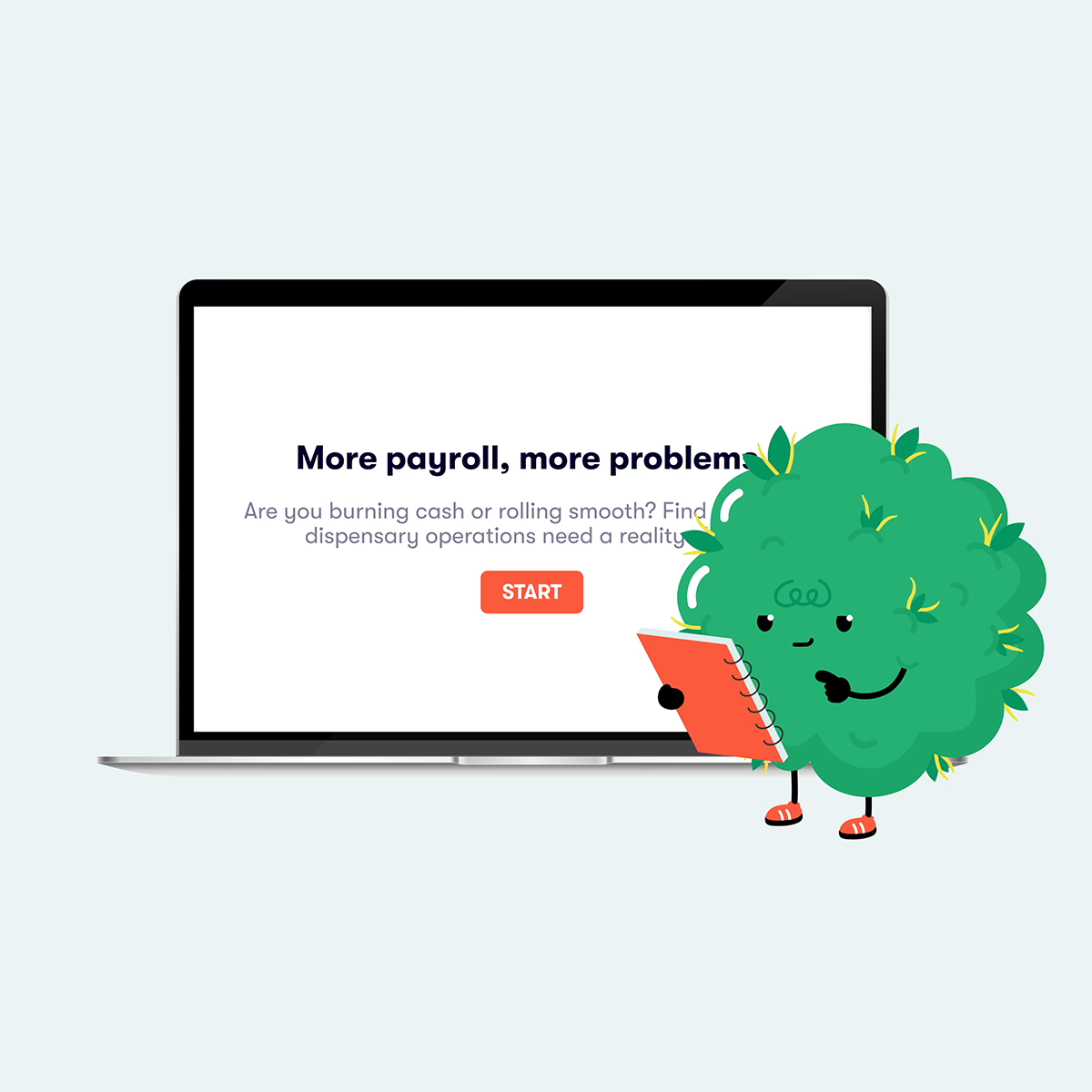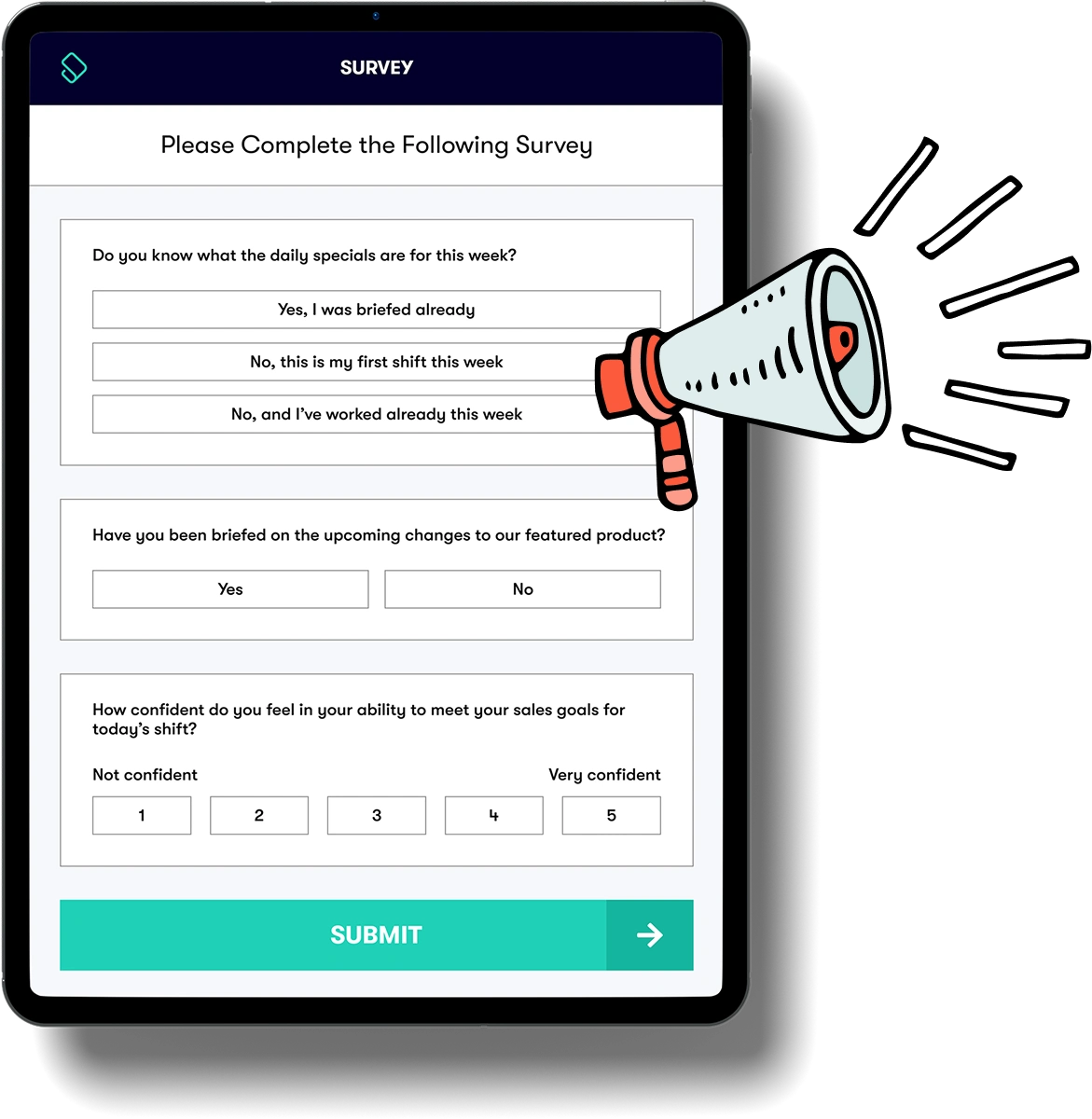Your Cannabis Dispensary Business Plan | Free Template

Table of contents
If you are wondering how to open a dispensary, then a business plan is perhaps the single most important document an owner needs to create.
Studies show that having a business plan can potentially double your chances of attracting investment and growing your business. This guide will not only be helpful when applying for licenses and permits but also when pitching to potential investors and partners.
First, it should be noted that to get a license to open a cannabis dispensary in North America, you need to submit a business plan to the licensing bureau for approval.
There are specific elements in the business plan that the states’ licensing bureaus are looking for, which must be present in your business plan for you to qualify for a license or permit to open a dispensary in a specific area. While all states might require details like location, information about the product and the team, some requirements are state-specific. So you need to do your research and find out what your state licensing commission prioritizes before writing your business plan.
To stimulate investor interest in your business idea, you need to be able to present a good, compliant business plan. In the investor community, this is considered the bare minimum an entrepreneur should do to get their idea considered. It is not enough, however, to tick all the boxes. You need a business plan that will make investors sit up and call you rather than one of your competitors.
A good business plan can also help you to flesh out the parts of the implementation process. Aspects about running the business like day-to-day operations, human resource management, compliance, and even security can get overlooked during ideation.
1. Market Need and Opportunity
Like every other business plan an entrepreneur has to write about their idea, you need to establish the need in the market that your business is solving and the way in which you plan to solve it. That is not as simple as saying there is no cannabis dispensary in the area because what if there is no need for one in the first place?
To establish a compelling argument for the need for your business in a particular area, it will help to do some research. Find out how the market in your area is accessing the product. What is wrong with that method? How would your business be a solution to that problem that you have identified? That is how you establish a need for your specific business and validate the opportunity you have identified to potential investors.
2. Define your Brand Identity
One of the essential elements to include in a cannabis business plan is your unique brand identity. This is important for both your potential investors and your license application process.
Brand identity refers to how the organization sees itself as a brand. For instance, what is your company's long-term vision? What are your values? What do you stand for? This information will help your potential investors understand you better and align themselves with your vision.
Furthermore, thoroughly articulating your brand identity will also help distinguish you from other license applicants at the licensing bureaus, which is vital because uniqueness and innovation are considered when awarding licenses.
While having a good name and logos to match is a great start, these elements are just the tip of the iceberg for having an effective dispensary branding strategy. Don’t be fooled into thinking your branding can be condensed into these two pieces alone.
Because the cannabis-based market continues to gain popularity across the globe, it’s essential to distinguish your brand from the others. Having a firm grasp of your branding, including organizing your thoughts and developing a brand strategy, will help give you a leg up on your competition before you even hit the market. You can learn more about dispensary branding here.
3. Define Your Target Market
Another essential feature of a good business plan is to define your target market. While the details of this are typically covered in a separate marketing plan, it is important enough to merit its own mention in the overall business plan. This is because identifying your target market early will help with many of the processes involved in setting up a cannabis dispensary.
Deciding whom you are targeting as a customer base will inform decisions to do with the product itself as well as branding, location, and the effective marketing strategies available to your dispensary. Furthermore, properly identifying and articulating your target market can help when applying for a license , as any ambiguity around your target market could be misunderstood as an intention to market to minors, which will get your application for a license turned down.
4. Location, Location, Location
Location is more important for a cannabis dispensary than for most businesses. In most states, cannabis dispensaries are required to have a location before they apply for a license. This is partly due to the various zoning laws restricting where one can open up a cannabis dispensary.
States limit the number of cannabis dispensaries allowed to open in their cities and municipalities. Furthermore, in many states cannabis dispensaries are not allowed to be set up close to schools, hospitals, or youth centers.
This is the reason why you need to include your intended location in your business plan, and you need to make sure that your area's zoning laws approve this location.
5. Execution Plan
Before approving an applicant for a cannabis retail license, most licensing commissions need to know that the applicant’s business model is feasible and that the applicant is capable of executing the plan once they get a license. As mentioned above, states limit the number of licenses they can give out and, as a result, the feasibility of the idea matters.
To establish feasibility, you will be required to submit a detailed execution plan. This includes your go-to-market strategy, launch budget, and your strategy to recruit employees. Other features like the technology you plan to use and your community outreach programs can also be included in this section of the business plan.
6. Product and Sourcing Plans
Another critical element of your business plan is your product description. This section appeals to investors and the licensing commission, as well as potential partners in the team. Describe the products you wish to sell in this section. This is important because not all products are allowed to be sold in all states. If applicable, explain the process of making that product along with the associated costs. Another important feature to add here is the paraphernalia required to consume your products and the benefits to your customers.
In addition to the above, you should also indicate where you plan to source your flower and the logistics involved in getting it to the store. All this information will increase your credibility to potential investors and cement the feasibility of your idea to the licensing commission in your area.
7. Financial Information
The financial section of a dispensary business plan is a significant element that investors consider before investing. That is because this section usually includes the projected revenues and profits of the business over time, the dividend sharing policy of the business, and details of other investors already on board. All this information is important for potential investors.
In addition to investors, the licensing bureau will also be interested in your financial information. This is because starting and operating a cannabis business is expensive, and you will need to demonstrate a capacity to raise capital before being granted a license. So make sure you indicate what your plans for raising capital are and who are your existing investors.
8. Defining Your Team
Your team is one of the biggest determinants of whether or not your business will succeed. The right team can help you identify opportunities, save time and resources, and meet your business goals. It can be a significant selling point for investors. That is why you need to include a section on the core team members, their credentials, and what they bring to the enterprise.
It is also crucial that you indicate the organizational structure and the business hierarchy so readers can understand what the decision-making process is in the team. Do you know the 8 people you need on your cannabis team? Be sure to include them in your plan!
9. Marketing and Sales Plans
No business can survive today without a marketing plan. And the cannabis industry is no different. It would help if you had a section in your business plan that covers how you intend to reach your target customers. Illustrate the consumer's journey from the first contact with the brand to becoming a qualified lead and eventually a brand customer.
In this section, you should identify your main marketing avenues based on where your target market can be found. This section should also include information on your competitors as well as your competitive advantages. Finally, indicate your key milestones and how you intend to measure the success of your marketing and sales performances.
10. Compliance and Security
To get approved for a cannabis license, you need to demonstrate an understanding of and ability to comply with the regulations governing dispensaries in your area. Compliance is crucial for cannabis businesses, as failure to comply could mean losing your license and losing your backing.
Aside from compliance, Highlight the standard operating procedures for running a cannabis business in your area and how you plan to ensure ongoing compliance with them. You should also indicate how you plan to secure your premises and inventory. What inventory management system will you use? What security equipment do you plan to put in place? You might need some help from a licensed security company to secure your business and to eliminate any liability from negligence.



Why You Need This Guide
Ready to grow your cannabis business to all-time highs? With KayaPush, you can roll through payroll in just 10 minutes!


We integrate with industry leading POS systems

- KayaPush imports live and historical sales data from Treez POS to enhance labor cost management and operational efficiency.
- Treez POS data integrates into KayaPush, empowering precise scheduling, cost analysis, and decision-making.
- KayaPush's scheduler displays sales insights, labor costs, and labor forecasts leveraging Treez's historical sales data.
- Heat maps visualize sales trends by time of day, optimizing staffing and operational strategy.
- The Enterprise Dashboard consolidates sales and labor data across locations, enabling accurate forecasting and comparisons.

- KayaPush imports live and historical sales data from Dutchie POS to enhance labor cost management and operational efficiency.
- Dutchie POS data integrates into KayaPush, empowering precise scheduling, cost analysis, and decision-making.
- KayaPush's scheduler displays sales insights, labor costs, and labor forecasts leveraging Dutchie's historical sales data.
- Heat maps visualize sales trends by time of day, optimizing staffing and operational strategy.
- The Enterprise Dashboard consolidates sales and labor data across locations, enabling accurate forecasting and comparisons.

- Import live and historical sales data to enhance labor cost management and operational efficiency
- Integrate your data to empower precise scheduling, cost analysis, and decision-making.
- Display sales insights, labor costs, and labor forecasts in your scheduler - leveraging Cova's historical sales data
- Heat maps visualize sales trends by time of day, optimizing staffing and operational strategy
- The Enterprise Dashboard consolidates sales and labor data across locations, enabling accurate forecasting and comparisons

- Import live and historical sales data to enhance labor cost management and operational efficiency
- Integrate your data to empower precise scheduling, cost analysis, and decision-making
- Display sales insights, labor costs, and labor forecasts in your scheduler - leveraging BLAZE's historical sales data
- Heat maps visualize sales trends by time of day, optimizing staffing and operational strategy
- The Enterprise Dashboard consolidates sales and labor data across locations, enabling accurate forecasting and comparisons

- KayaPush imports live and historical sales data at a granular level, as well as tips, from Flowhub POS to enhance labor cost management and operational efficiency.
- Flowhub data integrates into KayaPush, empowering precise scheduling, cost analysis, and decision-making.
- KayaPush Scheduler displays sales insights, labor costs, and labor forecasts leveraging Flowhub's historical sales data.
- Heat maps provide visuals of sales trends by time of day, optimizing staffing and operational strategy.
- Enterprise Dashboards consolidate sales and labor data across locations, enabling accurate forecasting and comparisons.

































